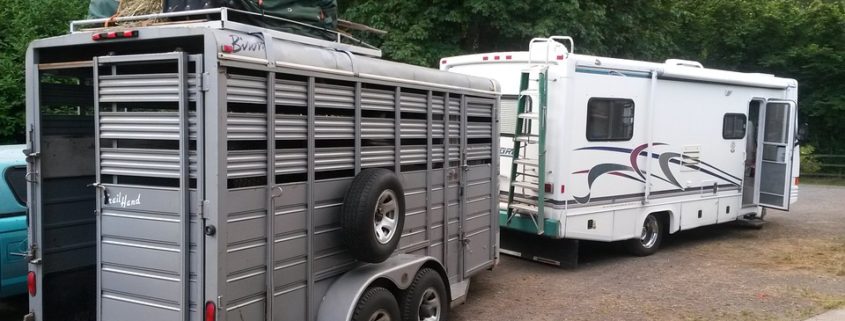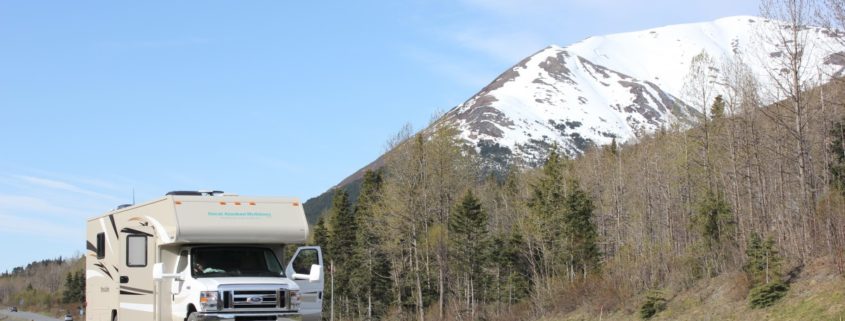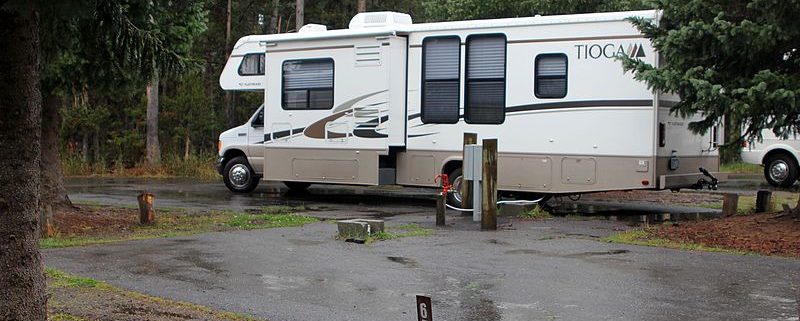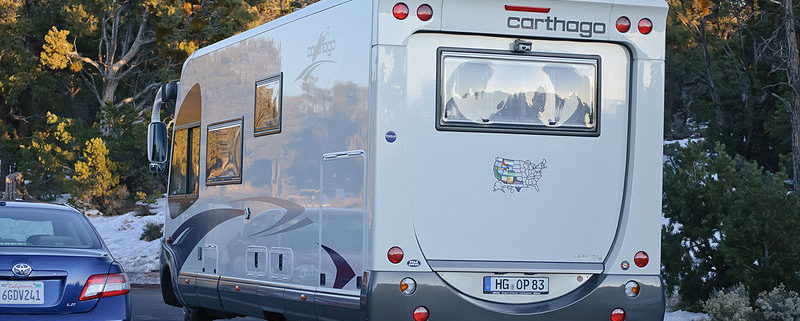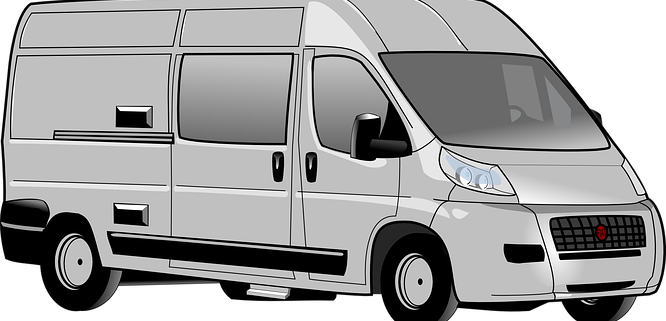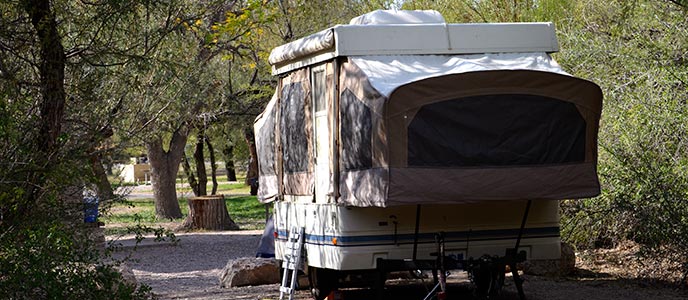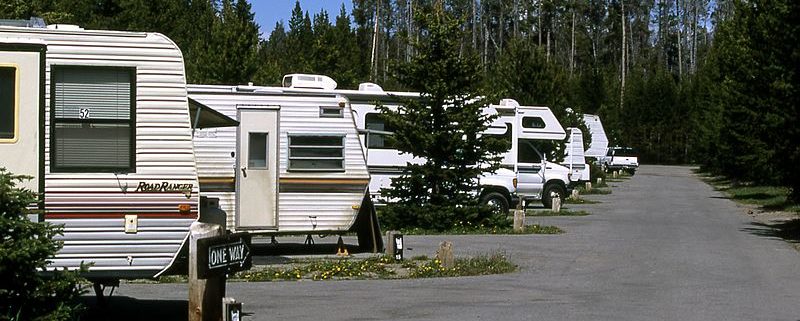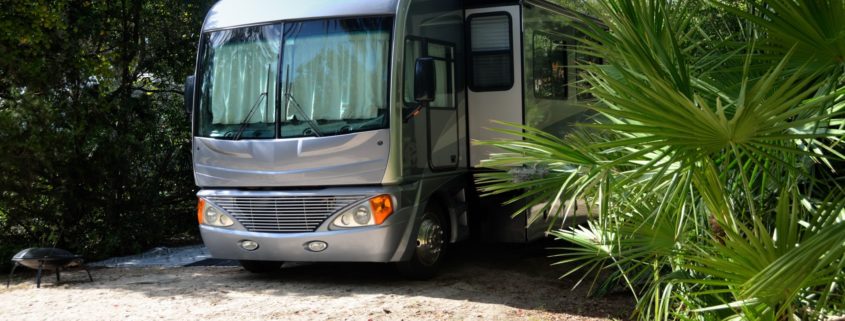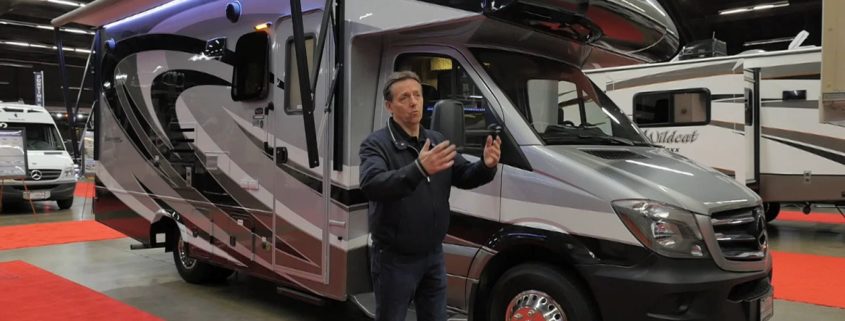RV Towing Tips: 3 Ways To Tow A Car Behind Your Motorhome
There are actually 3 popular ways of towing vehicles behind an RV. The one that’s ideal for your situation would be determined by a number of factors.
Your first choice is to take the vehicle on a flatbed or closed in trailer.
This trailer is going to support the entire vehicle and will have its own brakes and lighting system, guaranteeing its acceptance by almost all states.
Advantages: You’re not putting in unnecessary mileage to your second vehicle, and you can practically bring along any kind of vehicle you choose.
Disadvantages: Cost. It is absolutely a huge investment that will significantly affect your mileage. The overall combined weight can often be more then the capabilities of the average motorhome. For the average RVer, this isn’t a really practical solution.
A second approach is by using a tow bar, keeping all 4 of the car’s wheels on the road.
This is a usual option to transport a vehicle behind an RV. Again, every state differs as to what is acceptable. Safety cables and the Festiva are wired so that its taillights are activated by the taillights of the motorhome. This set-up works very well for quite a lot of situation.
One great thing about tow bars is the fact that a lot of them fold up, which makes them small for storage when not in use.
The only drawback would be moving in reverse. You cannot back up the RV while you have a car on a tow bar.
If the front wheels of the car turn the wrong way it will drag the car — putting great stress on the steering components.
A good number of motorhomes have an extended overhang to the rear. There are quite a few feet of motorhome beyond the rear wheels this multiplies the stress when trying to turn in reverse. Severe damage can happen to your towed car except if you unhook it from the motorhome when situations arise and you are compelled to back up.
Don’t assume that because a vehicle is a stick transmission it could be towed. Not every car can be towed with 4 wheels on the road. Consult with the manufacturer. Often this is covered in your owner’s manual. A lot of standard transmission cars can be towed, although not all. Some have a transmission lubrication pump that needs the engine to be running. Many automatics could be towed also. Saturn is one manufacture that declares their cars can be towed.
The final way is to make use of a tow dolly.
This is a great compromise. Front wheel drive automatic cars could be towed with their front wheels mounted on the 2-wheel tow dolly.
Manufacturers differ in how they make their tow dollies. For instance, Kar Kaddy has a steering system that mimics the natural steering whenever you tow with a tow bar. Other brands make use of a “wagon” method, as the required flexibility in steering is supplied by a center pivot point.
Tow dollies can have surge brakes, or possibly electric brakes — meeting the requirements of many states and enabling you tow a more sizeable car. You will still find it difficult to back up with a tow dolly, but at least you won’t be stressing the steering parts of your car.
Towing a car is a critical issue. Whichever method you choose, ensure you have safety devices in position and fully operational always.

